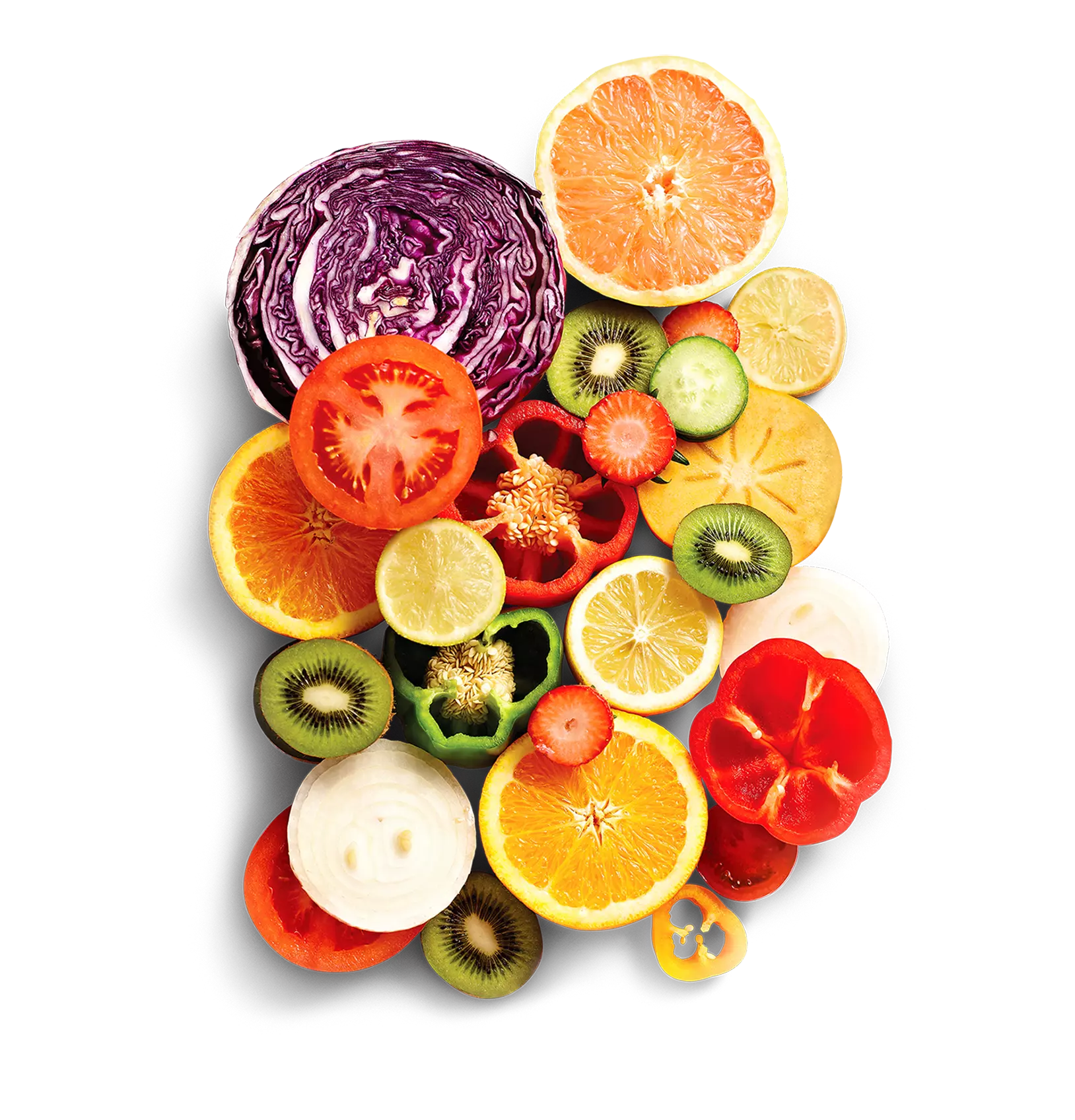Destacado en este post
5 Critical Areas of Focus in the Food and Beverage Industry for 2022
5 Critical Areas of Focus in the Food and Beverage Industry for 2022

It’s a challenging—but exciting—time to be doing business in the food and beverage industry. While the COVID-19 pandemic sent shockwaves through supply chains, resulting in permanent operational shifts, new opportunities and innovation are particularly abundant, making for a dynamic, fast-paced environment.
As 2021 begins to wind down, companies like yours are looking to next year and beyond to determine priorities going forward. There are a number of continuing or emerging developments that are likely to factor into your strategy, and choosing which are most worthy of your resources can be a complex exercise in balancing financial considerations, demand forecasts and internal change initiatives.
To get a clearer picture of what topics and concerns food and beverage businesses deem important, we commissioned IDC to produce the Global Food and Beverage Industry Trends and Strategic Insights whitepaper, which included a survey of more than 700 industry professional respondents across a wide variety of roles and functions.
Here, we examine five key areas of focus identified in the whitepaper and the reasons why these considerations have the attention of food and beverage leaders going into 2022. We’ll also touch on how food enterprise resource planning (ERP) solutions can help businesses make progress on these fronts and unlock future growth.
1. Ensuring Food Safety and Traceability
Between lingering public health concerns and customer demands for transparency on the part of food and beverage brands, it’s vital that every product that moves through your facilities is both safe and completely traceable down to its individual ingredients. Considering a joint study by the Food Marketing Institute and Grocery Manufacturers Association found the average direct cost of a recall to be around $10 million, the financial consequences of insufficient food safety and traceability measures is glaring.
In IDC’s survey, food safety and traceability together were the most popular focus for risk mitigation among respondents. Food safety was also ranked fourth on the list of trends to prioritize over the next year, while increased traceability demands and requirements ranked in the top 5 options for what will impact the food industry the most in the next 5 years.
Additionally, 72% of respondents indicated that traceability was of medium-high or high importance to the overall strategy of their company. Enterprise resource planning (ERP) solutions built specifically for food and beverage organizations are the gold standard for managing your concerns in these matters, as they can provide seamless bidirectional tracking along the supply chain and automatically schedule your critical food safety checks.
of respondents indicated that traceability was of medium-high or high importance to the overall strategy of their company
2. Becoming More Sustainable
Doing right by our planet by making your operations more eco-friendly is now considered a mission-critical objective by many industry leaders. This is in part because customers are voting with their dollars—Kerry Group’s recent survey found that almost half of all consumers around the world consider sustainability attributes when purchasing food and beverage products.
The IDC whitepaper confirms this idea, stating that companies are transitioning away from simply being “posters” on the topic of sustainability and instead becoming active practitioners. In fact, survey respondents selected sustainability as the top trend to prioritize over the next year.
What’s more, sustainability ranked second both among developments that will make the greatest impact on the food industry, as well as focuses for risk mitigation. Significant shifts in sustainability priorities and corporate social responsibility (CSR) mandates was also chosen as the third greatest threat to the food and beverage industry over the next 5 years.
Food ERP systems can help drive your sustainability efforts, offering analytical tools that make finding your greatest inefficiencies and largest sources of waste much simpler. These platforms also facilitate introducing more sustainable suppliers and materials in your supply chain with a highly configurable backend that allows for easy introduction of new partners and products.
3. Adapting to Suit Changing Consumer Demands and Regulations
Consumer tastes are always shifting, but recently a number of new categories and product attributes have seen spikes in popularity. At the same time, governments and other regulatory agencies are creating more stringent standards to which food and beverage businesses must adhere, putting pressure on your operations to always maintain full compliance.
From plant-based meat and dairy alternatives to functional foods and drinks with immunity-boosting properties, store shelves are lined with the latest in innovations designed to suit customer desires. Food and beverage companies are certainly aware of these trends, as respondents in IDC’s survey chose changes in consumer demands and preferences as the development that will leave the greatest impact on the food industry over the next 5 years.
Meanwhile, the regulations established by the Food Safety Modernization Act of 2011 are getting an update with the impending New Era of Smarter Food Safety being launched by the Food and Drug Administration in the United States. IDC survey respondents—who represented 13 countries, including the U.S.—definitely recognize the need to keep up with changes and updates to industry law, choosing food regulation and legislation as the second-most important trend to prioritize over the next year.
How can your organization achieve the agility necessary to navigate this ever-changing landscape? A food ERP helps both by empowering your research and development teams with complete recipe and formula management—allowing them to develop new products in line with consumers’ evolving expectations—as well as automated compliance checks and streamlined internal audits for complete assuredness.
improvement for food and beverage retailers' operating margins by tapping into the vast resource of big data
4. Taking Advantage of Big Data and Analytics
The subject of big data and analytics is not new, but it only continues to garner more attention as time goes by, and for good reason. A McKinsey study found that food and beverage retailers can improve their operating margins by as much as 60% by tapping into the vast resource of big data.
IDC survey respondents clearly know the value of digging deep into metrics for actionable insights, as they selected big data and analytics as the technology to have the greatest impact on their organizations over the next 5 years. Another complementary tool—artificial intelligence and machine learning—was also a popular choice on the list, especially among C-level participants.
By acting as a “single source of truth” for your whole organization and making your most important numbers highly visible, a food ERP platform can enable your business to harness the full power of your data. Powerful analytical tools, like those offered by Aptean Food & Beverage ERP, will help you make informed decisions for real results.
5. Seeking Resilience to Disruption Through Cloud Solutions
With the uncertainty of the pandemic era, mitigating the risks of disruptions is undoubtedly seen as a crucial consideration for food and beverage leaders. Future global disruption took the top spot on the list of biggest threats to the industry over the next 5 years in IDC’s survey, with the increasingly disruptive nature of the marketplace coming in second.
Many employees were forced to switch to remote work setups with stay-at-home orders, temporary closures and travel restrictions, and working from home may remain the norm even as “business as usual” resumes. This puts the onus on companies to provide reliable access to key systems regardless of location, making cloud solutions with mobile capabilities an attractive option for additional resilience.
Cloud ERP deployments not only suit the need for greater accessibility to offsite staff—they also lead to better results in a number of KPIs. Most notably, respondents to IDC’s survey from organizations with cloud systems reported 3.3% annual growth in revenue and 3.9% annual growth in profits, as compared to just 1.7% annual revenue growth and 2.7% annual profit growth among participants from businesses with traditional on-premise setups.
Preparing for the Future with Digital Transformation
The important focuses we’ve discussed here all require your organization to be ready for change as new trends and developments emerge. No single technology helps keep your operations flexible and capable of reacting quickly and appropriately as much as an industry-specific ERP system.
At Aptean, we champion the potential positive impacts of digital transformation, but a good plan requires a solid foundation, and in this case it’s our food ERP that provides that basis. With a single platform for your data, critical processes, compliance efforts and efficiency analysis, you can improve at a holistic level and make progress on multiple fronts at once.
We’re proud to offer full cloud implementations of our best-in-class purpose-built food and beverage solution, Aptean Food & Beverage ERP, for those businesses that are ready to make the leap for better dependability and security. All of our solutions are built on Microsoft Dynamics 365, which means we can put the latest integrations and tools at our clients’ fingertips while also offering a user-friendly software interface.
Ready to learn more about Aptean and how our products can help your food and beverage business realize success in 2022 and beyond? Contact us today.
¿Todo listo para transformar tu negocio?
Tenemos las soluciones ERP especializadas que necesitas para superar los desafíos de tu sector.



 Jack Payne | Vice President, Product Management & Solutions Consulting
Jack Payne | Vice President, Product Management & Solutions Consulting